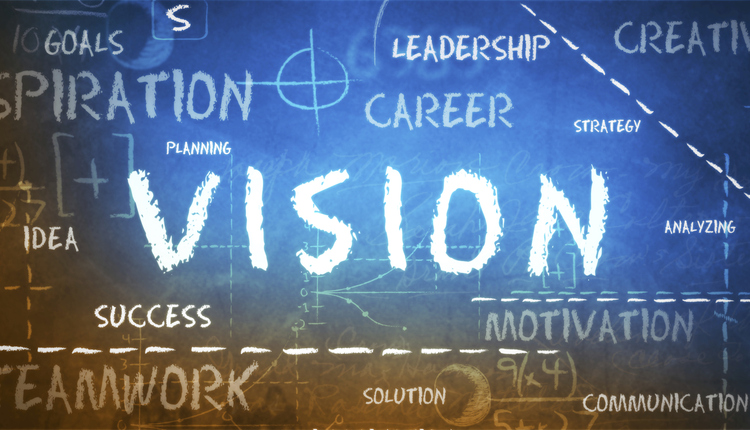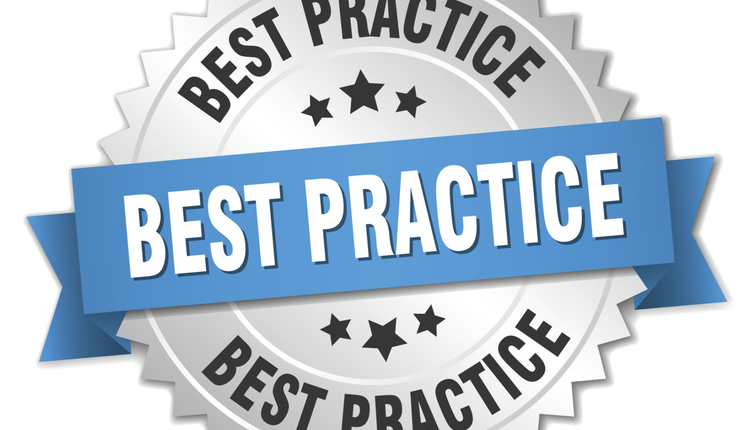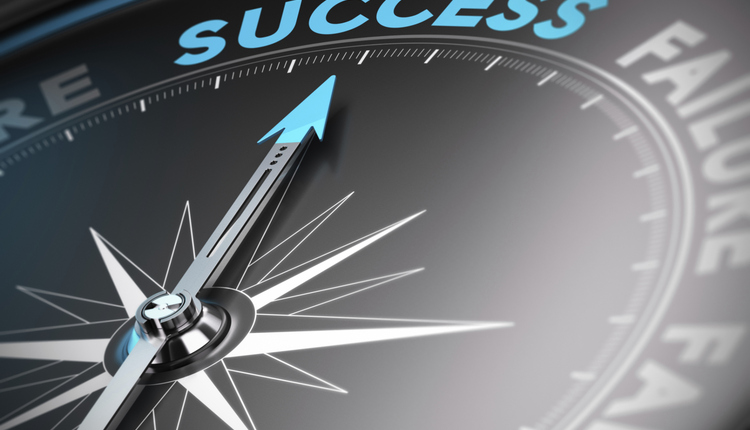Perhaps the greatest legacy any of us leaves are the people whose potential we helped develop. A great tool for developing people - and yourself - is mentoring. There are many benefits to being in a mentoring relationship. A mentoree gains valuable insight, a listening ear and sounding board, understanding of strengths and opportunities for improvement, different perspective, doors opened and more.
The mentor often gains more than the mentoree, including such gifts as the opportunity to pass on life lessons learned, practice interpersonal and management skills, expanding their horizons, and the satisfaction of helping another person achieving their potential. An effective mentor looks at how he or she can benefit others - and this ultimately benefits the individuals and the larger organization.
Suggested steps when starting a mentoring relationship include:
1) Clarify and communicate clear expectations. Make sure both the mentor and mentoree are on the same page and supportive of each other's expectations.
2) Set Realistic Goals & Objectives. Collaboratively setting goals in the front-end will help ensure focus and builds in direction and accountability into the relationship.
3) Focus on cultivating a great relationship. I like the following Ben Stein quote: "Personal relationships are the fertile soil from which all advancement, all success, all achievement in real life grows." Ultimately the main lasting benefit from mentoring is the development of a positive, win-win relationship between the two parties.
4) Seek opportunities to maintain contact. It takes time together to nourish healthy relationships. Schedule regular one-on-one meetings, but also look for other opportunities to spend time together and learn from each other.
5) Develop a mentoring network. There is real value to having multiple informal and formal mentors that can help us grow and develop. On the other side, being involved in helping multiple people develop is very rewarding and helps build that positive legacy that lives beyond our time in the organization.
The Seven Es of Effective Mentoring
At this year's National Postal Forum I heard my friend Jim Burns do an excellent presentation on mentoring. Part of what Jim included was the "7 Es" of effective mentoring, which came from Tony Dungy. Tony is the highly respected and successful retired coach of the champion Indianapolis Colts. Following are Tony's seven keys to being an effective mentor:
1) Engage. It's impossible to mentor from a distance. Without engagement, you cannot lead effectively. One way to facilitate engagement is to have an open-door policy with your mentoree. Let her know you want to be there as needed and encourage a connection if a special need arises. Another tool is to practice MBWA ("management by walking around"). Spending some time in the world of your mentoree helps promote engagement and shows that you care.
2) Educate. Education is an essential building block of effective mentorship. Mentoring should about helping others become the best they can be, and that is built on a foundation of helping, guiding and teaching. Our goal is to help everyone we are mentoring to earn an "A" - whatever an "A" represents in your organization.
3) Equip. Effective mentors help create an environment in which others can be productive and excel. Equipping goes hand in hand with education in helping people perform to their highest potential.
4) Encourage. Encouragement is the fuel that powers our efforts to engage, educate and equip. Encouragement helps lubricate the rough spots that people go through. As J.R.R Tolkien said "Kind and encouraging words cost little but are worth much."
5) Empower. True empowerment is preparation followed by the appropriate freedom. The best way to learn is by doing, so there comes a point when we need to let people loose do their jobs.
6) Energize. The best leaders and mentors energize and inspire those they are leading. Tools include having an inspiring and compelling vision, clearing road blocks to success, and believing in people and treating them like adults - not children.
7) Elevate. Raising up other people is the truly selfless goal of every effective mentor. It's not about getting the credit; it's about helping the organization and every person in it be the best they can be. As President Harry S. Truman put it "It is amazing how much you can accomplish when it doesn't matter who gets the credit."
Let me close with a classic Winston Churchill quote: "We make a living by what we get; we make a life by what we give." Good luck as you give of yourself to help develop other people in your life. They will be blessed - as so will you!
Wes Friesen, CMDSM, EMCM, MQC, ICP, CCM,CMA, CM, CFM, APP, PHR is the Manager of Revenue Collection & Community Offices for Portland General Electric, a utility in Portland, Oregon that serves over 820,000 customers. Wes teaches university classes and is a featured speaker at national Conferences like National Postal Forum, MailCom, CS Week and others. Wes can be contacted at Wes.Friesen@pgn.com. Check out his personal website for free information (www.wesfriesen.com).
The mentor often gains more than the mentoree, including such gifts as the opportunity to pass on life lessons learned, practice interpersonal and management skills, expanding their horizons, and the satisfaction of helping another person achieving their potential. An effective mentor looks at how he or she can benefit others - and this ultimately benefits the individuals and the larger organization.
Suggested steps when starting a mentoring relationship include:
1) Clarify and communicate clear expectations. Make sure both the mentor and mentoree are on the same page and supportive of each other's expectations.
2) Set Realistic Goals & Objectives. Collaboratively setting goals in the front-end will help ensure focus and builds in direction and accountability into the relationship.
3) Focus on cultivating a great relationship. I like the following Ben Stein quote: "Personal relationships are the fertile soil from which all advancement, all success, all achievement in real life grows." Ultimately the main lasting benefit from mentoring is the development of a positive, win-win relationship between the two parties.
4) Seek opportunities to maintain contact. It takes time together to nourish healthy relationships. Schedule regular one-on-one meetings, but also look for other opportunities to spend time together and learn from each other.
5) Develop a mentoring network. There is real value to having multiple informal and formal mentors that can help us grow and develop. On the other side, being involved in helping multiple people develop is very rewarding and helps build that positive legacy that lives beyond our time in the organization.
The Seven Es of Effective Mentoring
At this year's National Postal Forum I heard my friend Jim Burns do an excellent presentation on mentoring. Part of what Jim included was the "7 Es" of effective mentoring, which came from Tony Dungy. Tony is the highly respected and successful retired coach of the champion Indianapolis Colts. Following are Tony's seven keys to being an effective mentor:
1) Engage. It's impossible to mentor from a distance. Without engagement, you cannot lead effectively. One way to facilitate engagement is to have an open-door policy with your mentoree. Let her know you want to be there as needed and encourage a connection if a special need arises. Another tool is to practice MBWA ("management by walking around"). Spending some time in the world of your mentoree helps promote engagement and shows that you care.
2) Educate. Education is an essential building block of effective mentorship. Mentoring should about helping others become the best they can be, and that is built on a foundation of helping, guiding and teaching. Our goal is to help everyone we are mentoring to earn an "A" - whatever an "A" represents in your organization.
3) Equip. Effective mentors help create an environment in which others can be productive and excel. Equipping goes hand in hand with education in helping people perform to their highest potential.
4) Encourage. Encouragement is the fuel that powers our efforts to engage, educate and equip. Encouragement helps lubricate the rough spots that people go through. As J.R.R Tolkien said "Kind and encouraging words cost little but are worth much."
5) Empower. True empowerment is preparation followed by the appropriate freedom. The best way to learn is by doing, so there comes a point when we need to let people loose do their jobs.
6) Energize. The best leaders and mentors energize and inspire those they are leading. Tools include having an inspiring and compelling vision, clearing road blocks to success, and believing in people and treating them like adults - not children.
7) Elevate. Raising up other people is the truly selfless goal of every effective mentor. It's not about getting the credit; it's about helping the organization and every person in it be the best they can be. As President Harry S. Truman put it "It is amazing how much you can accomplish when it doesn't matter who gets the credit."
Let me close with a classic Winston Churchill quote: "We make a living by what we get; we make a life by what we give." Good luck as you give of yourself to help develop other people in your life. They will be blessed - as so will you!
Wes Friesen, CMDSM, EMCM, MQC, ICP, CCM,CMA, CM, CFM, APP, PHR is the Manager of Revenue Collection & Community Offices for Portland General Electric, a utility in Portland, Oregon that serves over 820,000 customers. Wes teaches university classes and is a featured speaker at national Conferences like National Postal Forum, MailCom, CS Week and others. Wes can be contacted at Wes.Friesen@pgn.com. Check out his personal website for free information (www.wesfriesen.com).














